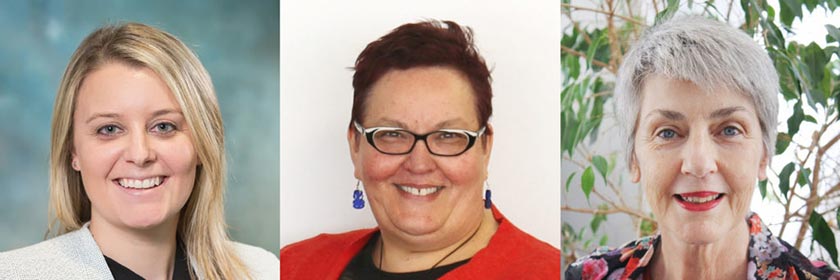
Eligible patients must be aged 18 or over, a citizen or permanent resident of New Zealand, suffer from a terminal illness likely to end their life within six months, have significant and ongoing decline in physical capability, experience unbearable suffering that cannot be eased, and be able to make an informed decision about assisted dying.
NZNO will be developing clear guidelines to ensure members are prepared for the practical implementation of the EOLCA processes.
Nursing voice
Policy adviser Māori, Leanne Manson, says it is critical NZNO and the nursing voice are represented in all discussion and decision-making, and particularly on the Support and Consultation for End of Life in New Zealand (SCENZ) Group. Members of this group are appointed by the director-general of health to oversee a list of medical and health practitioners willing to provide end-of-life care. SCENZ members will also be advising on medical and legal procedures carried out under the EOLCA in relation to the administration of medicine.
We expect to be part of this leadership group, with a representative who ensures an equitable, culturally safe and tikanga Māori approach to end-of-life care is prioritised.
With nearly 200 nurse practitioners (NPs) – who are eligible to provide end-of-life care – belonging to NZNO, it is important our voice is heard.
This follows NZNO’s active and successful advocacy in the formation of the bill as it went through the parliamentary process over the last few years. We successfully lobbied to include NPs among those able to provide care for people who choose to use the act to end their life. Kaiwhakahaere Kerri Nuku will continue to be NZNO’s representative on this kaupapa.
We are now establishing a relationship with and consulting with the Ministry of Health’s regulatory assurance team, which is responsible for implementing the EOLCA.
NZNO can see several scenarios where the EOLCA is not sufficiently clear as to how the nurse/health practitioner could or should act, eg how nurses can safely talk to patients who raise the possibility of seeking an assisted death. Or, how a nurse should respond if they believe a patient is experiencing improper pressure to have an assisted death.
We propose to consult widely and bring together expertise from within NZNO and externally to ensure our members have access to guidelines and other resources to clarify their rights and obligations under the EOLCA.
These are a few issues we expect members may need support on:
- Conscientious objection: Things to consider when deciding if you might have a conscientious objection, and how to act if you do.
- Concepts in the EOLCA such as patient eligibility and competence.
- Advocating to prevent inequities in the application of the EOLCA.
- Meeting cultural expectations of patients and their whānau where these are inconsistent with, or not provided for by, EOLCA processes.
- How the EOLCA interacts with your scope of practice, professional obligations and patient rights.
- Identifying when a patient is being improperly pressured to choose assisted dying, and what to do about it.
- What to do when a patient requests assisted dying, including procedural requirements such as forms, documentation, deferment and reporting.
- Potential nurse/health-care assistant involvement in arranging and advising on assisted dying.
- Suggestions on how to navigate conversations with the patient and their whānau about assisted dying.
- Advice a nurse can offer and conversations a nurse is able to have with patients and their whānau about the EOLCA.
- Nurse practitioner obligations to prescribe and administer the medication for assisted dying.
As the regulatory assurance team prepares guidance and processes, we will seek members’ input so we can ensure that resources developed by us, or with NZNO input, are complete, accurate and practical as we learn about and implement the EOLCA.
Successful implementation of the EOLCA will depend on all these issues being addressed, as well as others likely to emerge over the next 12 months as implementation proceeds.


